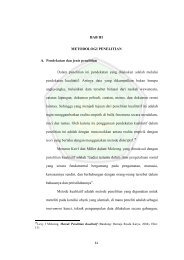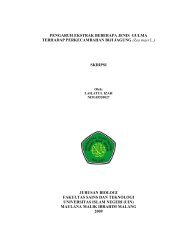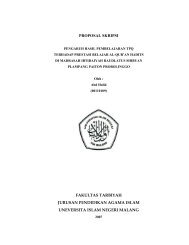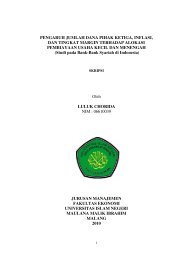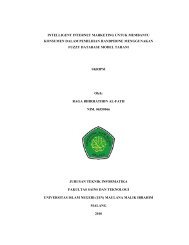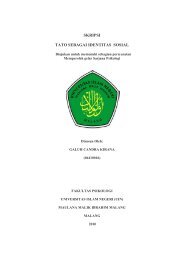CHAPTER I-V - Digilib UIN Malang
CHAPTER I-V - Digilib UIN Malang
CHAPTER I-V - Digilib UIN Malang
Create successful ePaper yourself
Turn your PDF publications into a flip-book with our unique Google optimized e-Paper software.
assumptions about the hearer’s cognitive abilities and contextual resources. This<br />
will necessarily be reflected in the way she communicated, and in particular in<br />
what she chooses to make explicit or what she chooses to leave implicit. 14<br />
Third, however apparently grammaticalized linguistic structure may be,<br />
utterances are, as we have seen, radically under-determined. So a single semantic<br />
relation may represent a very wide range of logical and semantic relations. Even<br />
the determination of sense requires an inferential process. 15<br />
Fourth, once the proportional form of an utterance has been fully<br />
elaborated. The utterance may be regarded as a premise. Which, taken together<br />
with other, non-linguistic premises available to the hearer as contextual resources.<br />
Enable him to deduce the relevant understanding. 16<br />
Fifth, the most accessible interpretation is the most relevant. This is an<br />
important notion because it enables us to discriminate in a principled way, i.e.: by<br />
taking into account the degree of processing effort, between the various inferences<br />
which, time allowing, we might recover. Hence there is a trade off between<br />
relevant and processing effort; ‘an assumption is relevant to an individual to the<br />
extent that the positive cognitive effect achieved when it is optimally processed<br />
are large (Sperber and Wilson in Grundy), (Positive cognitive effects, are changes<br />
in beliefs resulting from new information being added). Thus the greater the effect<br />
of an utterance the more relevant it is.<br />
14 Ibid, 2000;106<br />
15 Ibid, 2000;106<br />
16 Ibid, 2000: 106


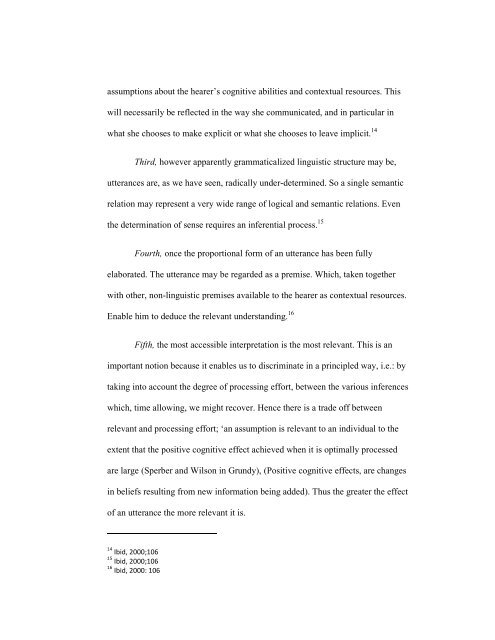
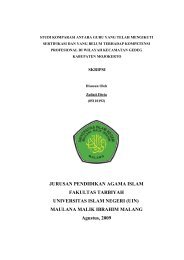
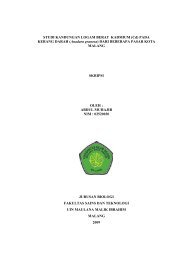
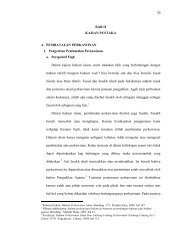
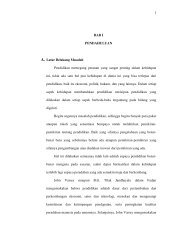
![Lampiran[1] - Digilib UIN Malang](https://img.yumpu.com/18300081/1/190x245/lampiran1-digilib-uin-malang.jpg?quality=85)
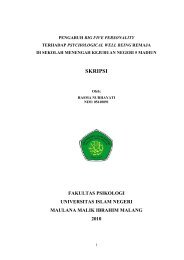
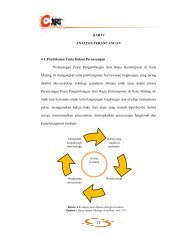
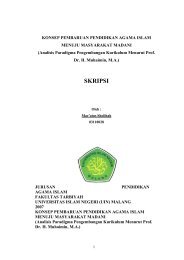
![Lampiran[1] - Digilib UIN Malang](https://img.yumpu.com/16335137/1/158x260/lampiran1-digilib-uin-malang.jpg?quality=85)
